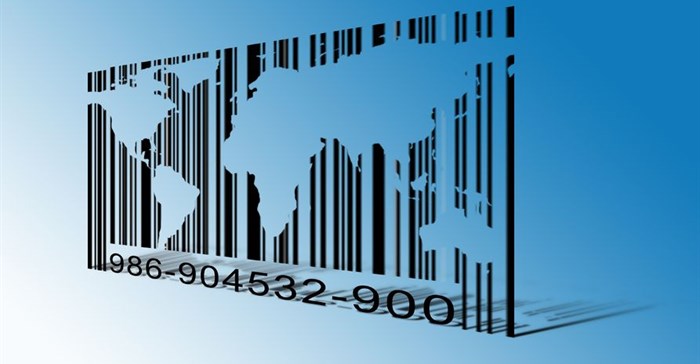Arguments supporting and opposing the existence of an African identity have been bandied about for generations. Are we African if we live in Africa or are we African because we were born in Africa? Perhaps we're African because of where our ancestors came from, or simply because we're not American, European or Asian. Maybe, as individuals, we don't identify as African at all, but as Senegalese, Zambian, Ghanaian, Ethiopian, or whatever national moniker we identify with.
Wherever your thinking takes you with regard to the African identity, there's one thing that is undeniable - the African continent has enormous potential to become a veritable powerhouse of trade and industry in the global economy. We have been stuck within our (arbitrarily created) borders for far too long. It's time we started taking our individual roles seriously in terms of creating unity on the continent. I am not talking ideological unity here, but rather economic unity. This means pulling together as a region to extract maximum benefit from what we have to offer each other.
Cross-border trade
In North America, 40% of cross-border trade is done with other North American countries. In Europe, that figure is 60%. In Africa, it's 12%. We have to ask ourselves why. Why, on a continent that occupies 20% of the world's land mass and houses 20% of the world's population, are we not looking to our neighbours when seeking out trading partners? Africa is the size of the US, India, China and Western Europe combined, yet these are the countries we turn to when we want to trade.
To make matters worse, a lot of what we export, in the form of raw materials, gets used to manufacture goods that we simply import back into the continent.
In case study after case study we see the benefits of increased intra-regional trade, including sustainable economic growth, skills development, reduced input costs, lower consumer prices, increased access to research and innovation, infrastructure development, reduced reliance on external economic factors (e.g. Chinese currency devaluation), improved international relations, increase in regional tourism, development of a strong regional identity, and greater potential to earn export income and attract foreign investment.
These benefits can be enjoyed by all participating countries, regardless of their relative economic strength. The poorer nations benefit as much as the richer ones do.
What do we have going for us?
- A collective mindset for overcoming adversity. We Africans are resilient and determined. Channelled in the right direction, the African resolve can make miracles happen.
- Vast resources. Our continent still has enormous untapped reserves of minerals, oil, gas, and uncultivated arable land.
- An active industrial base. Africa has burgeoning industries in a number of sectors, including agriculture for export, banking and financial services, information and communications technology, and tourism - all of which can be shared, used and built upon by the whole continent.
- A young population and a growing middle class. There are 500 million people under 35 living in Africa, with more and more people lifting themselves out of poverty each year. Granted, Africa still only accounts for 3.5% of the world's GDP, but we are moving, albeit slowly, in the right direction.
There are a number of things that need to happen before we can reach our full potential and move up from the 12% mark. Firstly, we need to work together. We need to assign an organisation the responsibility to drive trade between African countries - and we all need to buy into the process. If it remains a sub-clause in economic policy at country level, it will never happen.
Secondly, we must look at home first. Our primary port of call should always be in Africa when we're looking for trading partners. Even at consumer level, we should be looking for the Made in Africa label. The Made in America campaign has been hugely successful in the US. I recently heard a story of a clothing store in New York that placed identical T-shirts in two separate piles. The manager marked one pile Made in America and added 20% to the price. That was the pile that sold out first. We need to cultivate the same sort of pride here in Africa.
Thirdly, we need to play to our individual and collective strengths. Centres of excellence springing up all over the continent in the industries mentioned above. We need to harness off each other, add value, drive synergy, start new hubs of industry and create a continental economy that has the critical mass to start calling the shots on the global stage.
Lastly, and probably most importantly, African nations need to start implementing policies that make it easier to do business with each other. And here I feel I must also state the converse, which, although obvious, is probably more significant: We need to do away with policies that put up barriers to trade. This is vital if we want to develop internal economies.
Informal trading
We also need include informal trading in our thinking. It's difficult to put a number on it, but informal trading in Africa is massive. Often, trade is impeded by onerous visa requirements, customs issues, currency problems. There are also the ugly, yet ubiquitous issues of corruption and harassment to consider. Imagine if the women engaged in informal cross-border trade in areas such as Rwanda, the Congo, Zimbabwe, South Africa, Swaziland and the Great Lakes region - to name but a few - could buy and sell their produce at will, without facing a constant threat of violence, sexual harassment and bribery. Or if the labourers from Mozambique could cross into South Africa without having their passports stolen by corrupt border officials.
None of this is impossible, of course. Going back to my earlier comment on the African identity, I believe that what unites us as Africans is a mutual understanding of what it means to be human. We recognise each other as individuals. We have a deep-seated instinct and desire to help each other. Arbitrarily drawn borders have constructed false divisions between us. I believe we can overcome these divisions to generate the innovation, skills, industries and markets we need to become economically significant in global economics. But it must start at home. It must start here, in Africa.





































